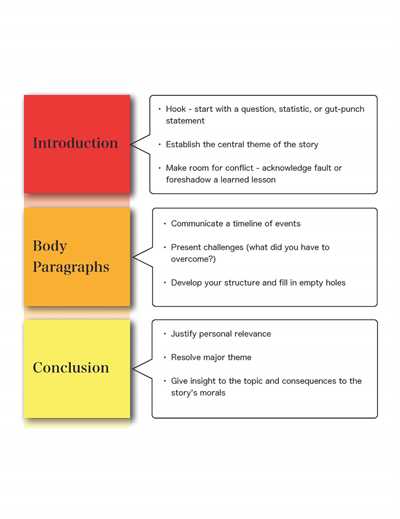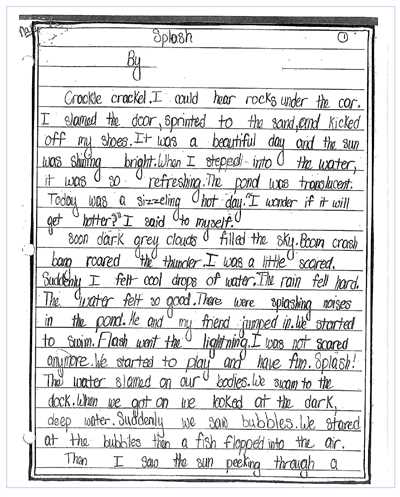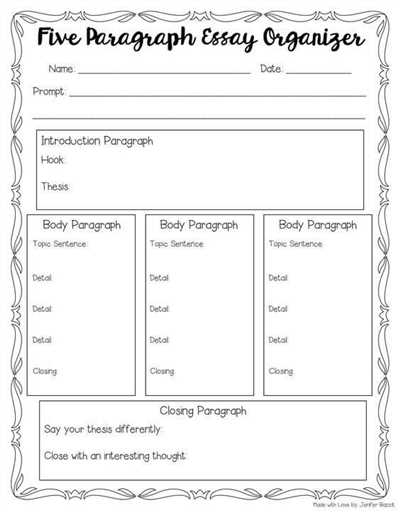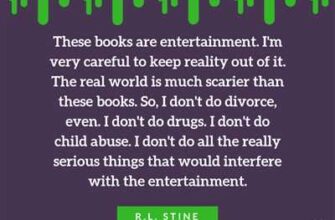
Writing a narrative composition is quite an achievement, as it requires excellent storytelling skills and the ability to engage readers. Whether you are a college student looking for tips on how to write a narrative essay or a professional writer searching for the best techniques, this article is here to help. Choosing the right topic, outlining the structure, and developing the main theme are key elements to consider when writing a narrative composition.
One of the first steps is to think about choosing a topic that is not only interesting but also significant to you. Whether it’s a short trip, a personal experience, or a moment of struggle and resilience, make sure to choose something that you can write about with passion and from your perspective. This will help you to engage readers and deliver a more informative and captivating narrative.
When writing a narrative composition, it is important to check if the source material is free from plagiarism. Plagiarism is a serious offense and can have severe consequences, both in terms of your academic or professional career and in terms of copyright violations. To prevent this, it is recommended to use reliable and trustworthy sources, such as Purdue Owl or other reputable educational websites. Moreover, running your work through plagiarism checkers can also help you identify any accidental or unintentional instances of plagiarism.
Another important aspect to consider when writing a narrative composition is the structure. Just like any other essay, a narrative composition should have an introduction, body paragraphs, and a conclusion. The introduction should briefly introduce the main theme or topic of the narrative, while the body paragraphs should develop the main ideas and provide details, examples, and experiences to support them. Finally, the conclusion should summarize the key points and leave the readers with a strong and memorable impression.
While writing a narrative composition, it is important to keep in mind the purpose of the essay. Is it meant to entertain, inform, or persuade the readers? By clearly defining the purpose of your narrative composition, you can ensure that your writing stays focused and achieves its intended goal. For example, if the purpose is to entertain, you may want to focus on creating a captivating story with interesting characters and plot twists. On the other hand, if the purpose is to inform, you may want to focus on providing detailed and factual information.
In conclusion, writing a narrative composition involves choosing a great topic, developing a clear structure, and staying focused on the purpose and theme of the essay. By following these tips and guidelines, you can write an excellent narrative composition that engages readers and leaves a lasting impression. So, whether you are writing a narrative composition for college applications or for your own personal enjoyment, I hope these tips and insights will help you create a memorable and impactful piece of writing.
Welcome to the Purdue OWL

At the Purdue OWL, we understand how important it is to choose the right theme when writing a narrative composition. Whether you’re working on a short story, a personal essay, or even a college application essay, the theme you choose will significantly impact your readers’ experience.
When selecting a theme, it’s crucial to focus on a topic that resonates with you. Think about your own experiences, achievements, and moments of struggle. Is there a common thread that ties them together? Perhaps there’s a particular behavior or quality that you find interesting or significant. Choosing a theme that reflects your personal interests and perspective will help make your narrative composition more authentic and engaging.
While writing a narrative composition, it’s also essential to keep in mind the purpose of your work. Are you informing, persuading, or entertaining your readers? Clarifying the purpose will help you maintain a clear focus throughout your essay.
At the Purdue OWL, we believe in the importance of excellent writing ethics. That’s why we want to remind you not to plagiarize in your narrative composition. Plagiarism is when you use someone else’s words, ideas, or material without giving them proper credit. When incorporating sources into your essay, be sure to use proper citation methods and give credit to the original authors.
When writing a narrative composition, it’s essential to prevent plagiarism by citing your sources correctly. This is particularly important when using material from literature, informative sources, or even your own experiences. By citing your sources, you show respect for the original authors’ work and ensure your readers that your essay is based on reliable information.
Another essential aspect of writing a narrative composition is choosing the right perspective. Will you be narrating from the first, second, or third person? Each perspective has its own benefits and limitations, so think about which one will best convey your story and connect with your audience.
Moreover, we understand that writing a narrative composition can sometimes be a challenging task. That’s why we have compiled a list of helpful tips and prompts to assist you. Our goal is to guide you through the writing process and help you develop your narrative composition skills.
When writing a narrative composition, don’t forget about the power of a well-written introduction and conclusion. These sections serve as bookends to your story and leave a lasting impression on your readers. By crafting an engaging introduction and a thought-provoking conclusion, you can ensure that your narrative composition stands out.
Remember that a narrative composition allows you to showcase your creativity and resilience. Use this opportunity to highlight your unique perspective and experiences, and don’t be afraid to explore topics that are close to your heart. By sharing your story, you can inspire and connect with others.
In summary, the Purdue OWL is here to support you in your narrative composition journey. We offer a range of resources that can help you improve your writing skills, prevent plagiarism, and choose the right theme for your essay. So, welcome to the Purdue OWL, where you can find excellent guidance and tips to make your narrative compositions a success!
Prevent plagiarism Run a free check
When writing a narrative composition, it is important to focus on creating a unique story that captures the interest of your readers. However, it is equally important to prevent plagiarism by ensuring that your work is original and not copied from other sources. Plagiarism is the act of using someone else’s work, ideas, or words without giving them proper credit.
In this modern age of technology and easy access to information, it can be a struggle to come up with a unique narrative theme. With so many applications and websites available, it is tempting to use someone else’s work as your own. However, this is not only unethical but also against the guidelines set by most colleges and universities.
To prevent plagiarism in your narrative composition, you should always start by choosing a topic that is personal to you. Your own experiences, achievements, or significant moments can serve as excellent sources of inspiration. By focusing on your own perspective and unique qualities, you can create a great story that is both informative and interesting to read.
While writing, it is important to be aware of where your ideas are coming from. If you notice that you are using someone else’s work or ideas, it is essential to give proper credit to the original source. This can be done by citing the source or using quotation marks when directly quoting someone else’s words.
To ensure that your narrative composition is free from plagiarism, it is recommended to use plagiarism detection tools. There are many online platforms and software available that can run a free check on your paper, comparing it to a vast database of written materials. One such tool is the Purdue Online Writing Lab (OWL), which offers a free plagiarism checker for your convenience.
In conclusion, preventing plagiarism in your narrative composition is vital to maintain the integrity of your work and adhere to copyright laws. By choosing a personal and unique topic, giving credit to original sources, and using plagiarism detection tools, you can ensure that your narrative composition is original, informative, and of high quality.
Narrative essays in college applications
When it comes to college applications, narrative essays play a crucial role in showcasing your experiences, achievements, and personal qualities. These essays give admission officers a chance to check your writing skills, focus on your perspective, and understand your unique story.
College applications often include prompts that ask you to write about a significant moment, a challenge or struggle you’ve faced, an achievement or trip that had an impact on you, or a personal experience that demonstrates resilience or growth. When choosing a topic for your narrative essay, it’s important to select something that you find interesting and that aligns with the theme or purpose of the application.
It’s essential to write a narrative essay that is both engaging and well-written. The Purdue Online Writing Lab (OWL) offers excellent tips and resources on how to craft a great narrative essay for college applications. A common mistake to avoid is plagiarism, so be sure to write your own story and avoid using material from other sources without proper citation.
Your narrative essay should provide a short, informative, and free-flowing account of your experiences, focusing on the main point or lesson learned. It should capture readers’ attention from the beginning and maintain their interest throughout. Remember to run a thorough check for grammar and spelling mistakes, as this can detract from the overall quality of your paper.
In narrative essays, you have the freedom to choose the perspective from which you tell your story. This can be in the first person, where you narrate the events using “I” and “me,” or in the third person, where you observe the events from a more objective standpoint. Whichever perspective you choose, make sure it enhances the impact of your narrative.
One great example of a narrative essay for college applications could be writing about a moment when you had to exhibit resilience and overcome a significant struggle. By sharing this experience, you can showcase your ability to persevere in the face of adversity and demonstrate important qualities that admission officers look for in applicants.
In summary, narrative essays in college applications serve as a platform for you to tell your story, share your experiences, and highlight your achievements. They are an opportunity to demonstrate your writing skills and showcase your unique perspective and resilience. Make sure to choose a topic that aligns with the application’s purpose, capture readers’ attention, and craft a well-written essay that reflects who you are as a person.
20 Excellent Narrative Essay Topics and How to Choose One
When writing a narrative essay, choosing the right topic is crucial. The topic sets the tone and direction for your entire composition. It determines the experiences, perspectives, and moments you will share with your readers. To help you find the perfect topic for your narrative essay, we have compiled a list of 20 excellent topics and provided tips on how to choose one.
1. A moment of achievement: Write about a personal accomplishment that made you proud and how it affected your life.
2. A memorable trip: Share a narrative about a special journey or vacation that left a lasting impression on you.
3. Overcoming a struggle: Describe a difficult challenge or obstacle you faced and how you managed to overcome it.
4. The most significant person: Write about someone who has had a profound impact on your life and why.
5. A life-changing experience: Narrate an event or a series of events that completely changed your perspective or way of thinking.
6. The power of resilience: Tell a story of resilience and how it helped you overcome adversity.
7. An unforgettable moment: Share a narrative about a moment that you will remember forever.
8. Facing a fear: Write about a time when you confronted and conquered your fears.
9. The importance of friendship: Describe a story that highlights the value of friendship in your life.
10. A lesson learned: Narrate an experience that taught you an important life lesson.
11. A cultural experience: Write about a time when you immersed yourself in another culture and how it impacted your perspective.
12. The role of family: Share a narrative that explores the significance of family relationships in your life.
13. Discovering a passion: Describe a moment when you discovered a new interest or hobby that became a significant part of your life.
14. A moment of self-discovery: Write about a time when you learned something new about yourself.
15. An act of kindness: Narrate a story that showcases the power of kindness and its impact on others.
16. A challenge that changed you: Describe a situation or event that forced you to grow and develop new qualities or skills.
17. A funny or embarrassing moment: Share a humorous or embarrassing story that you can now laugh about.
18. A turning point: Write about a moment in your life when you made a significant decision or changed direction.
19. A childhood memory: Narrate a story from your childhood that holds special meaning to you.
20. An important life lesson: Share a narrative that taught you a valuable lesson for your future.
When choosing a topic for your narrative essay, consider your coursework, applications, or the common prompts given for college essays. Think about your interests, experiences, and unique perspectives. Notice what themes, materials, or literature sources you find most interesting and why. Focus on a specific moment, experience, or perspective that stands out to you. While choosing a topic, check for copyright and plagiarism issues to prevent any problems.
Remember, the purpose of a narrative essay is to inform and entertain. It should showcase your writing skills while engaging your readers. Be sure to run your ideas by others and get feedback to help you refine and polish your narrative essay topic. Welcome the opportunity to think creatively and write about something that matters to you.
Disclaimer: The text above is a simulated HTML representation and may not be directly usable in your final project. Consider replacing HTML tags according to your project’s requirements.
Disciplines

When it comes to writing a narrative composition, there are several disciplines that can help you craft a compelling and engaging story. These disciplines can guide your writing process and ensure that your paper is both informative and entertaining. Here are some disciplines to consider when writing your narrative:
- Literature: Reading literary works can give you ideas and inspiration for your own narrative. Explore different genres and styles to see what resonates with you.
- Personal experiences: Drawing from your own experiences can add authenticity and depth to your narrative. Reflect on meaningful events or moments that have shaped you as a person.
- Research: Conducting research on a specific topic can provide valuable insights and background information for your narrative. Use reputable sources to ensure accuracy.
- Resilience: Writing a narrative can be a challenging task. Develop resilience and perseverance to overcome any obstacles or struggles you may encounter along the way.
- Character development: Pay attention to the development of your characters. Give them unique qualities and traits that will engage readers and make them memorable.
- Choosing a theme: Select a theme or topic that interests you and aligns with the purpose of your narrative. This will give your story focus and direction.
- Structure: Organize your narrative in a logical and coherent manner. Use clear transitions and paragraphs to guide readers through your story.
- Writing tips: Refer to writing resources such as the Purdue Online Writing Lab (OWL) for tips and guidelines on narrative writing. They offer excellent advice and examples to help you improve your writing skills.
- Plagiarism prevention: Always give proper credit to the sources you use in your narrative. Include in-text citations and a bibliography to avoid plagiarism and respect copyright laws.
- Free writing: Allow yourself to freely explore ideas and concepts when brainstorming for your narrative. Don’t be afraid to think outside the box and experiment with different approaches.
By incorporating these disciplines into your writing process, you can enhance the quality and impact of your narrative composition. Remember, a well-written narrative is a result of practice, effort, and a genuine passion for storytelling. Good luck!








